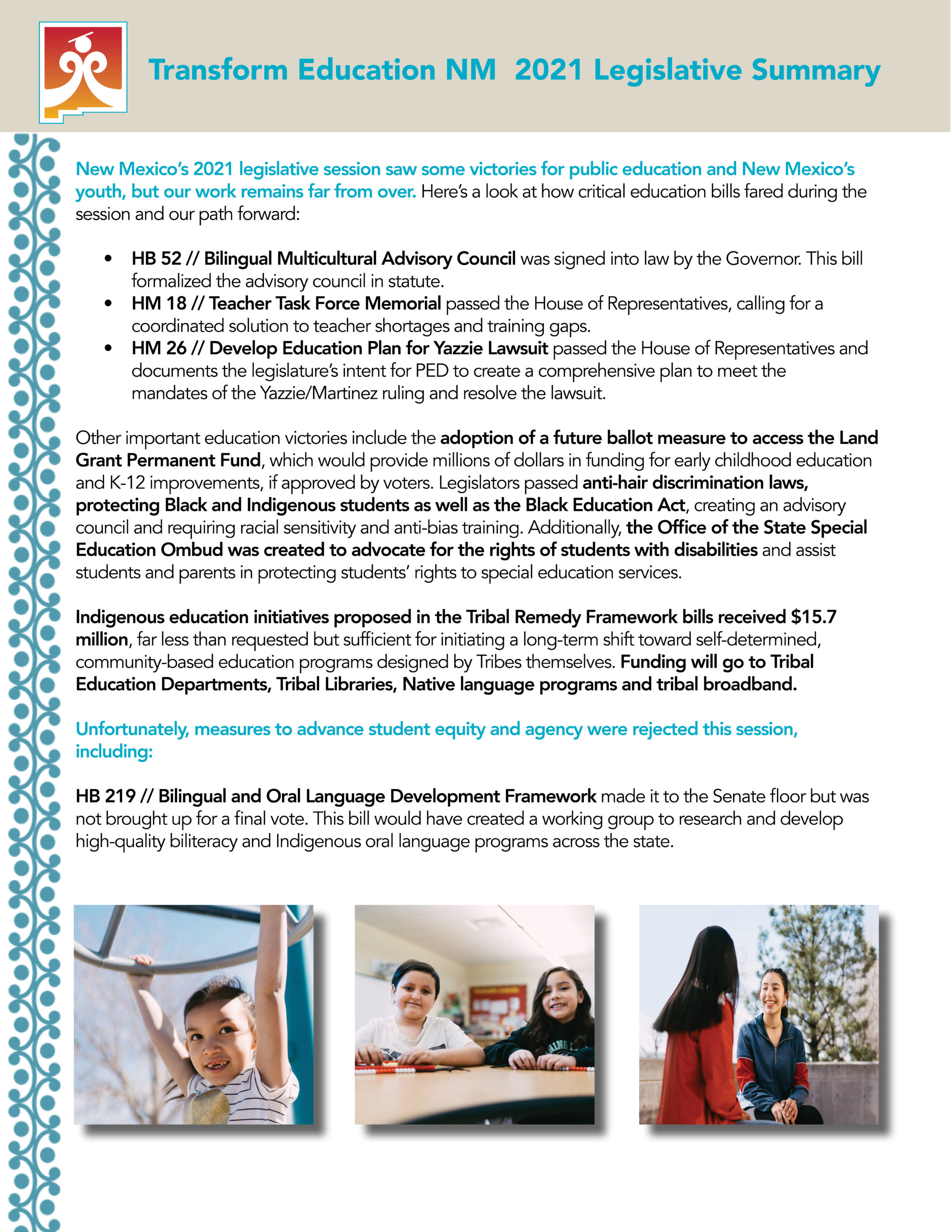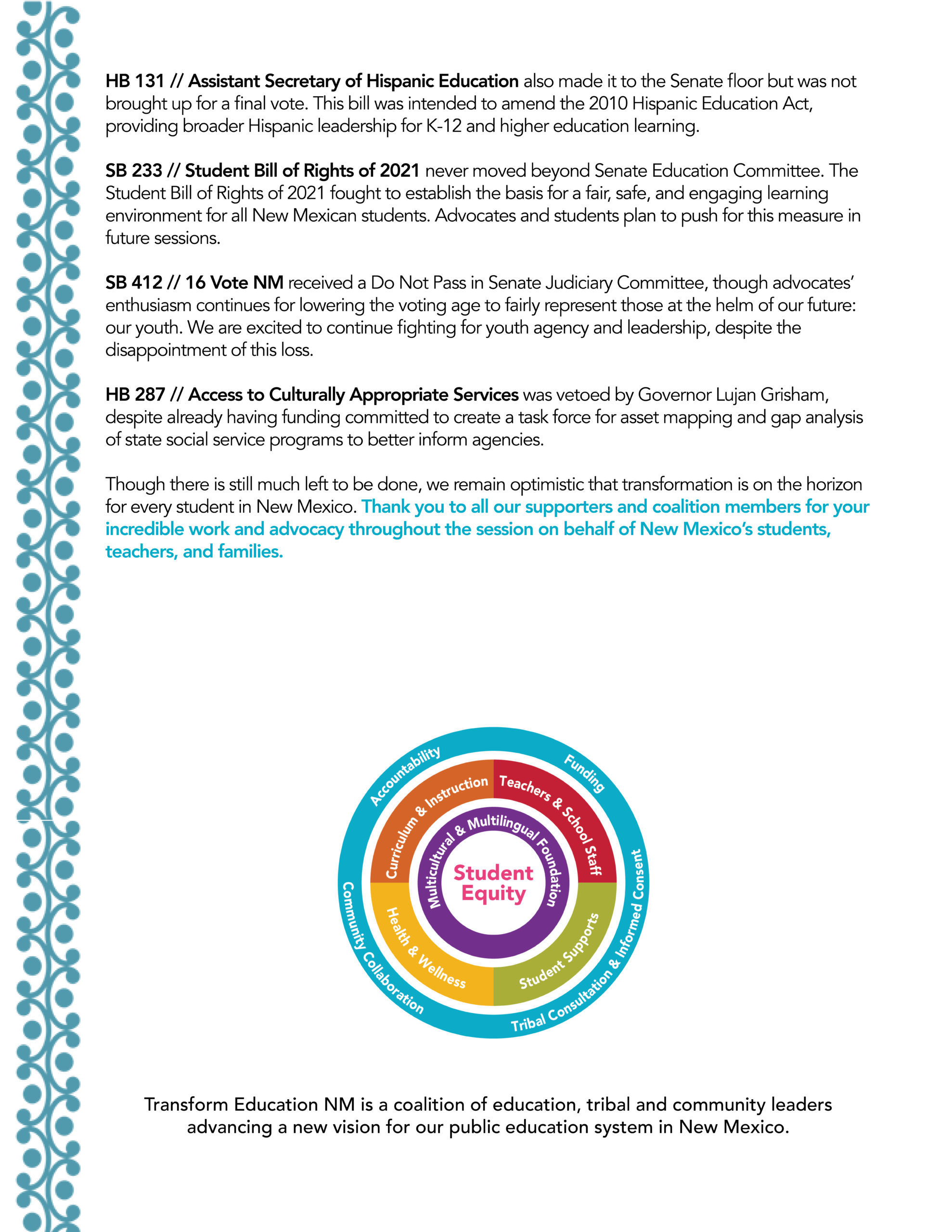New Mexico’s schools faced dire circumstances over the last year as decades of disproportionate disinvestment came to a head under the immense stress of the COVID-19 pandemic. Many of our state’s elected officials stepped forward in support of the drastic changes needed to not only heal from the pandemic, but to address the constitutional right students have to a sufficient education. While we can celebrate achievements seen at the Roundhouse for the 2021 regular legislative session, we acknowledge our work remains far from over.
To watch our full panel discussion on the 2021 State of Education featuring Wilma Mankiller Award recipient and Yazzie/Martinez v. State of New Mexico plaintiff Wilhemina Yazzie, Senator Carrie Hamblen, House Education Committee Chair G. Andres Romero, Representative Derrick Lente, and Representative Javier Martínez visit our Facebook page.

